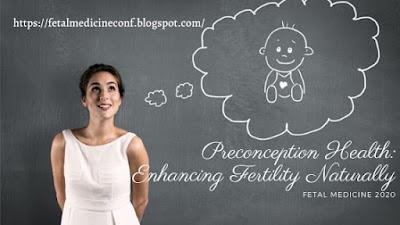Preconception Health_ For a Healthy Family !

Preconception Health: Preconception health refers to the health before pregnancy. Maternal lifestyle in the period prior to conception, as well as during pregnancy, is an important determinant of healthy pregnancy and normal fetal development. By the time most women have realised that they are pregnant and have taken the first contact with antenatal care, the fetal organs have already been developed. Interventions aiming to prevent adverse pregnancy outcomes related to organogenesis are thus often too late. Risk factors include insufficient nutrition, low levels of folate, overweight/obesity, medical conditions and its treatments, alcohol and tobacco use, and high age. Maternal nutrition both preconception and during pregnancy can affect growth, development and later health outcomes of the fetus. To reduce the risk of neural tube defects (NTDs) in the fetus, women are advised an intake of 400 μg folic acid daily in good time before conception and up to 12 weeks after. ...


